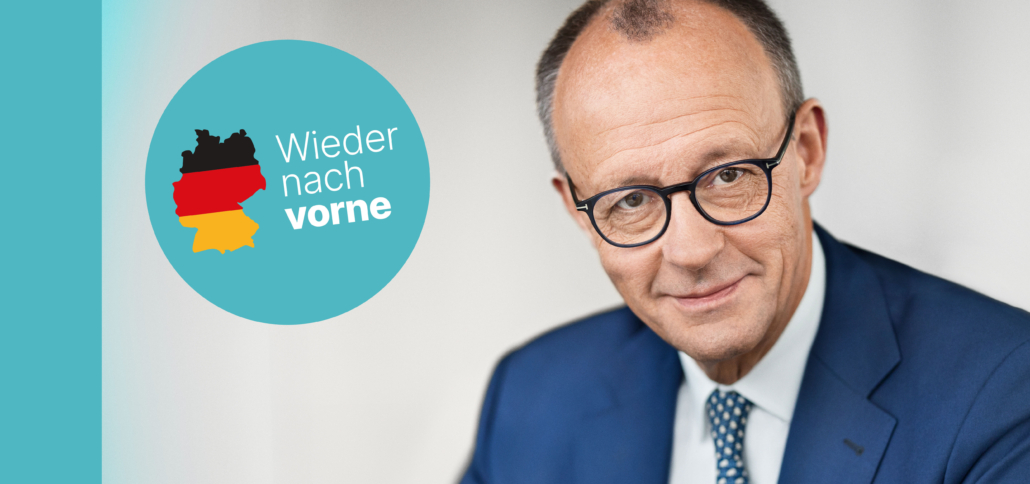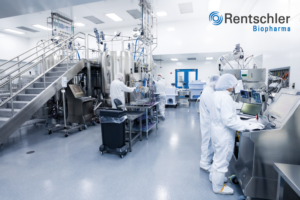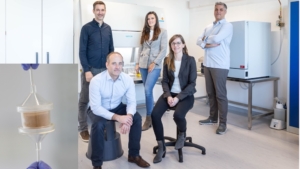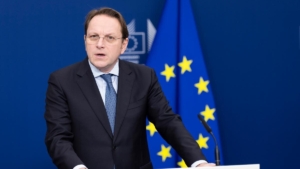
New German Chancellor wants a strong Europe
With a 7.7% lead, the incoming Christian Democrat Chancellor Friedrich Merz has put the radical right-wing AfD in its place. Before forming a government in Germany, Merz emphasised that Germany wants to strengthen the EU's self-sufficiency, although the role of biotechnology seems to be of secondary importance to him.
With a majority of 28.5% ahead of the radical right-wing AFD (20.8%), 16.4% for the likely coalition partner SPD and the Greens (11.6%) and left-wing party Die Linke (8.8%), the Christian Democrat Friedrich Merz has been confirmed as Germany’s next Chancellor. He is in favour of a strong Europe that can act – at least militarily – independently of its current ally, the USA. ‘For me, it will be an absolute priority to strengthen Europe as quickly as possible, so that step by step, we can really achieve independence from the USA,’ Merz said, noting that ’the Americans, at least this administration, are largely indifferent to the fate of Europe.’ His statement was initially clearly referring to military independence.
According to the election programme of Merz’s CDU/CSU parliamentary group, Merz wants to pause central regulations of the Green Deal such as sustainability reporting, CO2 tariffs on imported goods (CBAM) and ESG criteria for assessing the sustainability of companies for two years and boost Germany’s and the EU’s recently faltering economic growth by cutting red tape. On the same day that the EU Commission presented the targets and subsidies of the Clean Industrial Deal, it has already implemented Merz’s targets. However, it has done so intelligently, as small companies in particular, which cause few CO2 emissions, are relieved of the burdensome reporting obligations, while large corporations with the corresponding administrative capacity must continue to report.
Germany’s Social Democrats are the preferred coalition partner of Merz. A coalition with the far-right AfD, which doubled its share of the vote compared to the last election in 2021 and is the strongest party in all federal states of the former GDR, was ruled out before the election.
It is still unclear how the Christian Democrats’ strong focus on rearmament, limiting uncontrolled migration and Germany’s economic recovery will affect biotechnology in the EU in concrete terms. However, Germany’s financial dominance as the world’s third strongest economy and Merz’s political influence on EU Commission President Ursula von der Leyen are likely to have a strong impact on the direction of EU policy – especially as Merz said after the election: “Europe is waiting for us, for Germany, to take on a stronger leadership role again.” When it comes to biotechnology, it is striking that the Christian Democrats, who have always been open to technology, have not stated whether or not they see high-tech biotechnologies as a growth opportunity for the EU: In the programme, one searches in vain for the previously clear commitment to a simplified approval procedure for new genomic technologies (NGT) or to microbial and cell-based food production, for example to strengthen Europe’s independence from expensive soya imports and a sustainable production of meat and dairy products from single-cell cultures that complements agriculture. Climate laws will be made less bureaucratic such as in the Clean Industrial Deal and the trading of standardised CO2 certificates, which will start in Europe in 2026, will help to achieve the target of a 90% reduction in greenhouse gases by 2025. According to experts, however, this only makes sense globally, but – following the USA’s withdrawal from the 2015 Paris Agreement and in view of China’s refusal to enter into concrete and binding agreements – global certificate trading is a distant prospect. Concerning NGTs, the Polish Presidency presented a third proposal, which balances the interests of farmers to have access to seeds with those of developers who want to have a certain degree of patent protection of their NGT breeds. It has good chances to go through, even if Germany and Belgium would reject it (see upcoming print issue).
However, as the new chancellor’s party has an affinity for technology, it is expected to promote sustainable product developments that boost exports. According to new studies, this clearly includes cultivated food, which farmers see as competition. According to a new life cycle assessment of Finnish mycoprotein pet food producer Enifer, bio-based processes to produce protein alternatives can reduce the carbon footprint of meat production significantly. The cradle-to-gate total carbon footprint of its fermented product PEKILO®Pet, covering fossil, biogenic, Land Use, Land-Use Change, and Forestry (LULUC) emissions, is 0.93 kgCO₂e per kilogram of product. In contrast, soy protein concentrate produces up to 6.7 kgCO₂e per kilogram. This means that PEKILO®Pet has 86% lower carbon emissions, equivalent to driving 46 kilometers less in an average gasoline-powered car. PEKILO®Pet also performs better than insect protein powder (1.15 kg CO₂e) and produces five times fewer emissions than high-quality dry pet food ingredients like lamb (5.84 kg CO₂e). However, next-gen biomanufacturing processes can do even more, according to two position papers published by German industrial biotechnologists and the innovation agency SPRIN-D.
The proposed complementation of the classical bio-based bioeconomy by cross-sectoral integration of AI-supported biomanufacturing processes in industrial biotechnology called for by two expert groups before the German parliamentary elections remained uncommented on by European and German Christian Democrats. Instead, farmers were labelled as new innovators in the recently published ‘’‘A Vision for Agriculture and Food’ and the potential double-digit billion market for cultured protein alternatives was ignored, suggesting that the EU wants to stick to its low-tech bioeconomy approach, even though a brand new study by the Nova Institute concludes that biomass-centric processes can account for a maximum of 20% of the current almost entirely petrochemical production of chemical products by 2050. In view of the presentation of an EU Bioeconomy Act planned for the end of November in Copenhagen, associations such as EuropaBio have recently pointed out the role of modern biotechnologies in a future-proof, growth-oriented bioeconomy concept that will be realised in the USA, particularly in the states of Nebraska, Indiana, Maine, Michigan and Wyoming, as well as in the UK. Europe is now looking to Germany with excitement and hope.


 Rentschler Biopharma SE
Rentschler Biopharma SE TQ Therapeutics GmbH
TQ Therapeutics GmbH EC- press service
EC- press service